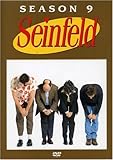[singlepic id=67 w=320 h=240 float=left]
Mulligan calls to Stephen from within the tower, pulling Stephen out of a series of flashback visions of his mother.
He tells Stephen to come on down like “a good Mosey.” Gifford, in Ulysses Annotated, parses this as “one who moves slowly or shuffles.” But I think there’s a strong overtone of “Moses” in it too. Later in the day, Stephen will think of Moses and his view from Mt. Pisgah, as he writes a “parable of the plums” rooted in modern Dublin life.
The way Rob presents this moment, with an enormous, distant horizon, gives you a strong contrast to the claustrophobic visions of the past. There’s a long view before Stephen, (a view towards Britain and beyond that, Europe), but he’s pulled away from it by his tie to Mulligan, as well as by the past that haunts him.




